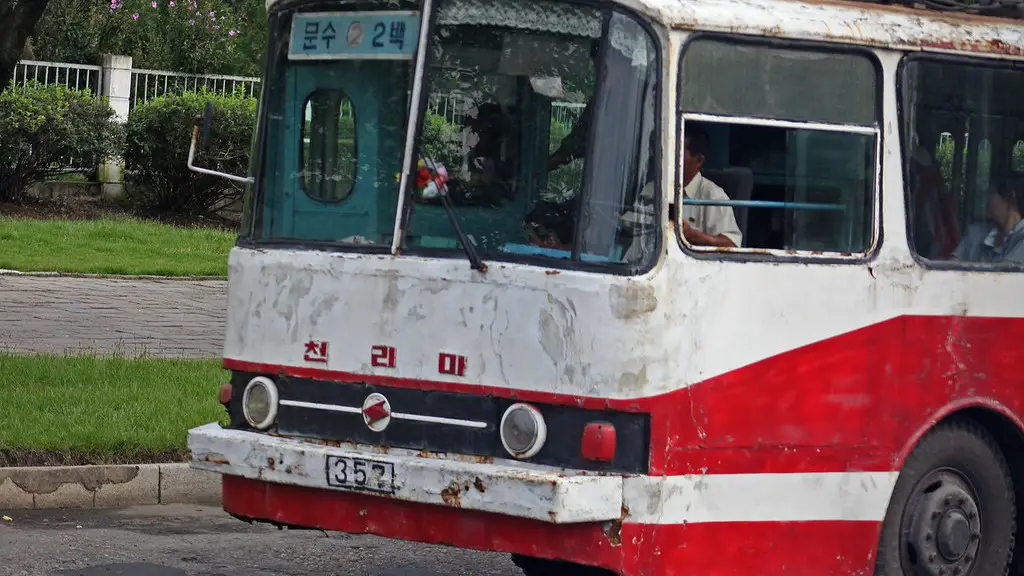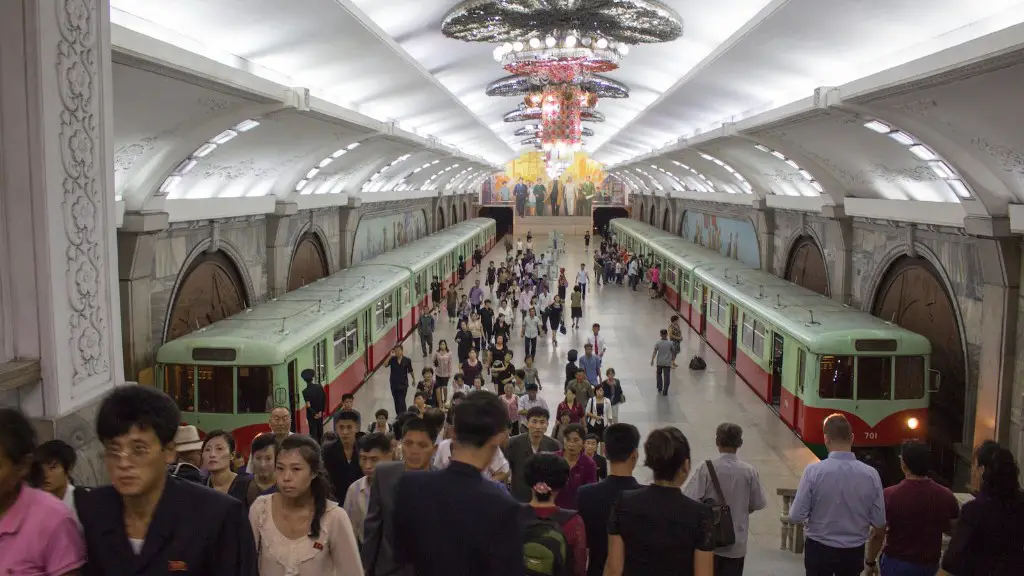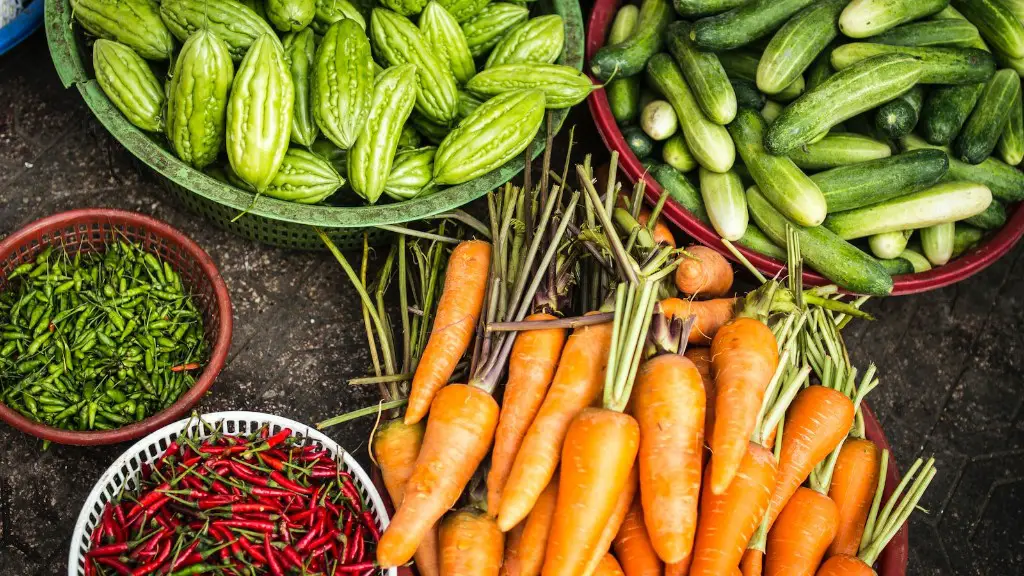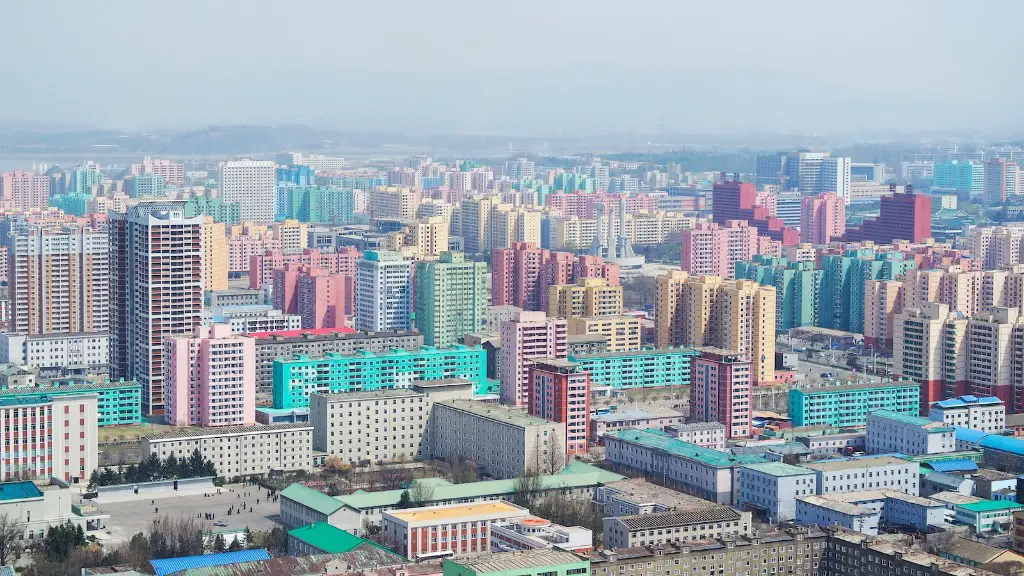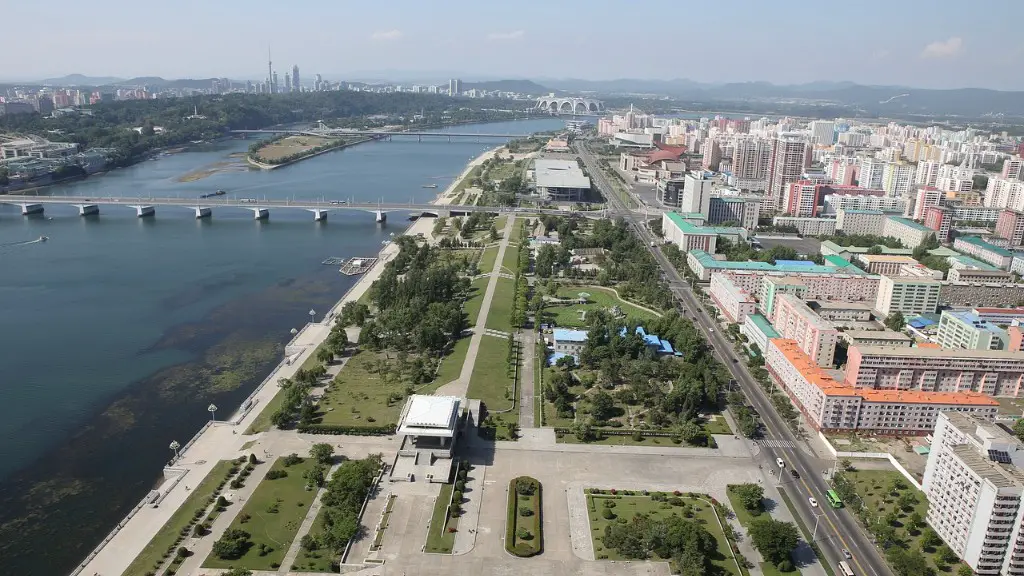The people living in North Korea are living in total darkness, both literally and figuratively.
Their nuclear development has resulted in the United Nations imposing tough economic sanctions on the country, cutting them off from the global economy and limiting access to vital resources. These sanctions have resulted in a severe lack of public services such as food, medicine, electricity, and infrastructure.
The current situation in North Korea is certainly contributing to its citizens’ hopelessness and fear. Consequently, the people of North Korea are subjugated to a life of political suppression and economic deprivation. In essence, the people of North Korea have been forced to survive in a state of isolation and poverty.
Experts argue that North Korea is one of the most oppressive governments in the world with the citizens having very little access to the outside world. As a result, authentic information about what people in North Korea think and feel is extremely difficult to acquire. This has forced the international community to speculate what North Koreans think, while relying largely on the accounts of former North Korean defectors to form a better understanding.
The important thing to note here is that most North Koreans actually know very little about the outside world, which is why they tend to perceive foreigners and ‘westerners’ as enemies. This fear is especially deep-seated amongst older generations, but recent defectors have admitted that even the younger generations, who are supposed to be more open minded, still hold some distrust towards those from the outside.
Many experts also argue that North Koreans, regardless of their age, are largely unaware of the atrocities committed by their own government. This is not surprising, given the fact that the government heavily controls media outlets and tightly limits access to foreign news and information. As some have noted, many North Koreans are still content with the regime and do not feel the need for change. Consequently, they are resigned to the status quo and prefer stability to the uncertainty of potential change.
Therefore, it seems that the North Korean people are mentally, emotionally and spiritually oppressed. They live in constant fear of their government and the unknown, leading to a feeling of helplessness and lack of hope, especially since they do not have the means to oppose their government.
What Are the Implications of This Situation?
The implications of this situation are far-reaching and could have highly unpredictable consequences if it is not addressed soon. On a humanitarian level, it is clear that the people of North Korea are suffering immensely and are in desperate need of aid and assistance. Additionally, in terms of international security, the nuclear threat posed by North Korea cannot be ignored and needs to be addressed on a global level.
However, given the current political environment and the lack of trust between the North Korean government and the international community, it is unlikely that any meaningful change or progress will occur soon. Additionally, it does not seem that the people of North Korea will be able to effect any significant change within their own country anytime soon either, as most are likely too resigned to the status quo and lack the means to oppose the government.
Therefore, it is up to the international community to take action, such as extending humanitarian aid to North Korea, while also engaging in meaningful dialogue in order to build trust and address the issues and concerns of both sides. In doing so, the international community can hopefully help to bring about a better future for the people of North Korea and ensure global security as well.
What Can International Communities Do?
It is vital that governments of the international community take action in order to help the people of North Korea. Providing humanitarian aid is undoubtedly one of the most effective ways to do this, as it can help to ease the suffering of those in need. Additionally, engaging in meaningful dialogue with the North Korean government can be beneficial in terms of creating an environment of understanding, trust and respect, as well as helping to address the various issues and concerns of both sides.
However, it is also important for the international community to push for basic human rights to be reinstated in North Korea. This can include advocating for the release of political prisoners, the elimination of censorship, and the restoration of freedom of assembly, expression, and the press. Furthermore, the international community should support North Korean defectors and ensure their protection in the event of repatriation.
Ultimately, it is essential that the international community takes action in order to help the people of North Korea. Providing humanitarian aid and engaging in meaningful dialogue are undoubtedly important steps in this process, but it will ultimately be the responsibility of the governments of the international community to push for basic human rights to be restored in North Korea.
Methods of Overcoming Obstacles
In order to overcome the obstacles that North Korea presents to the international community, it is essential that governments of the international community engage in cooperative initiatives in order to promote peace, stability and security in the region. This can include decreasing tensions between countries by committing to peaceful solutions, as well as advocating for improved human rights conditions in North Korea.
Furthermore, it is important to ensure that any diplomatic efforts undertaken by the international community to address crises in the region involve North Korean citizens and North Korean defectors. It is also essential that any assistance programs that are implemented in North Korea involve North Korean citizens as well. In doing so, not only will the government of North Korea be forced to address the needs of its people, but it will also bring about a sense of hope and possibility for the people of North Korea.
Additionally, it is important for foreign governments to use positive reinforcement in order to encourage North Koreans to adopt more progressive ideologies and outlooks. This can include supporting certain projects and initiatives, as well as providing incentives such as economic and educational opportunities. Additionally, the international community should use media outlets, such as radio, television and the internet, in order to share information about the outside world and open North Koreans up to alternative worldviews.
Overall, it is essential that the international community engages in cooperative initiatives and utilizes positive reinforcement in order to help North Koreans embrace change and encourage their government to address their needs. By doing this, the international community can hopefully bring about meaningful and lasting change in North Korea.
Conclusion
In conclusion, it is clear that the people of North Korea are living in a state of isolation and poverty. As a result, they are largely unaware of the atrocities committed by their own government and trust outsiders very little. Consequently, the international community must take action in order to help the people of North Korea by providing humanitarian aid, engaging in meaningful dialogue, and pushing for basic human rights to be restored.
Furthermore, in order to overcome the obstacles that North Korea presents to the international community, governments of the international community must engage in cooperative initiatives and utilize positive reinforcement in order to help North Koreans embrace change and encourage their government to address their needs. By doing so, the international community can hopefully bring about meaningful and lasting change in North Korea.
